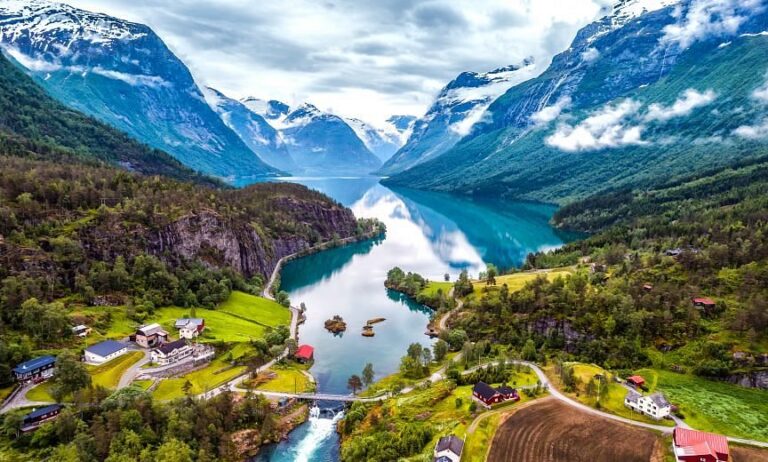For nations blessed with abundant natural resources, the promise of prosperity often comes with a significant challenge: how to responsibly manage immense wealth for the long-term benefit of all citizens. While many resource-rich countries have struggled with this paradox, leading to boom-and-bust cycles or exacerbated inequalities, one Nordic nation stands out as a beacon of foresight and fiscal prudence: Norway.
At Geeks Economy, we’re fascinated by economic models that defy conventional wisdom and deliver tangible, equitable results. Norway’s approach to its vast oil reserves is a masterclass in strategic economic planning, offering profound lessons on sustainability, governance, and the true meaning of national wealth.
The Foundation of Future Prosperity: Norway’s Sovereign Wealth Fund
With a population of just over 5 million inhabitants, Norway discovered significant oil and gas reserves in the North Sea in the late 1960s. Rather than succumbing to the temptation of immediate spending, the Norwegian government, with remarkable foresight, established the Government Pension Fund Global (GPFG) in the 1990s. This wasn’t merely a savings account; it was a visionary mechanism designed to transform finite natural resources into an enduring financial legacy for future generations.
Today, the GPFG boasts an astounding patrimony exceeding US$ 1.5 trillion. To put this into perspective, that’s approximately US$ 277,000 for every Norwegian citizen, making it the world’s largest sovereign wealth fund. What’s truly remarkable isn’t just the sheer size of the fund, but the disciplined principles guiding its management.
The Pillars of Norway’s Success: Prudence, Transparency, and Long-Term Vision
Norway’s success isn’t accidental; it’s the result of deliberate policy choices rooted in a long-term vision:
- The Spending Rule: A cornerstone of the GPFG’s sustainability is its “spending rule,” which limits annual withdrawals to approximately 3% of the fund’s total value. This disciplined approach ensures that only the real return on investments is spent, preserving the fund’s capital for generations to come, even during periods of market volatility.
- Negative Net Debt: While many developed nations grapple with escalating public debt, Norway stands in stark contrast. According to the International Monetary Fund, Norway maintains a “negative net debt,” meaning its assets significantly outweigh its liabilities. This enviable financial position provides unparalleled stability and resilience to economic shocks.
- Independent Management and Transparency: The GPFG operates with a high degree of independence from political influence, managed by Norges Bank Investment Management (NBIM). Its investment strategies are diverse, global, and guided by ethical guidelines, including exclusions for companies involved in certain controversial industries. Crucially, the fund operates with exceptional transparency, making its holdings and performance publicly accessible.
- Commitment to Social Welfare: The wealth generated by the fund directly supports Norway’s robust social welfare system, funding public services, education, healthcare, and infrastructure. It demonstrates a profound commitment to distributing the benefits of natural resources equitably among all citizens, ensuring a high quality of life for its population, including generous retirement provisions.
A Lesson for All Economies
Norway’s journey offers valuable insights for any economy, particularly those in the “Geeks Economy” realm that emphasize data-driven decision-making and sustainable growth. While other nations, like Brazil with its Pre-Salt Social Fund, have attempted similar initiatives, Norway’s unparalleled success highlights the critical role of strong governance, long-term strategic planning over short-term political gains, and an unwavering commitment to fiscal discipline and transparency.
The Norwegian model demonstrates that natural resource wealth, when managed judiciously, can be a transformative force for national development and intergenerational equity, rather than a source of volatility or corruption. It’s a powerful testament to the idea that true economic strength lies not just in what you have, but in how wisely you choose to manage it for the collective good.


